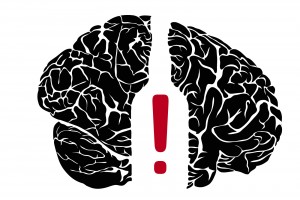You hear from time to time that there are benefits of eating nuts. But you don’t often see more details about it. I came across an article entitled “Nut lovers rejoice: Your favorite snack protects your heart”. It stressed that nuts prevent heart attacks. I will review some of this information here, but also touch on other aspects.
What nuts contain
Nuts contain fiber, unsaturated fatty acids, protein, vitamin E, folate and many minerals (zinc, potassium, magnesium). These ingredients have their own positive effects on your metabolism. For instance the fiber will lower cholesterol and triglycerides in your blood, which are risk factors for heart attacks. Vitamin E is a powerful antioxidant. Here is a review that shows why eating nuts makes a difference for your health. Despite all of the good that nuts do, you need to keep an eye at the overall quantity of nuts you eat. Nuts can contain up to 80% as oil, even though they are good oils. But the extra calories associated with the oil can make you gain some weight. When you add nuts to your diet you need to subtract some of the lesser quality saturated fats, so that your overall calorie balance does not change.
How do we know that nuts are healthy?
A British study from 2016 did a meta-analysis of people who ate nuts versus people who did not include nuts in their diet. 10 studies showed that eating nuts reduced mortality from all causes by 19%. In 5 studies where cardiovascular mortality was measured, a reduction of 27% was noticeable. Congestive heart disease in 3 studies showed a reduction by 34% when the patients consumed nuts. Stroke mortality was 17% less, as 3 studies showed. This is just an example of a few studies that show how effective supplementation of your diet by a few nuts here and there can be on the general mortality. It especially applies to mortality which is due to heart disease and strokes. Other effects of nut consumption are the reduction of atrial fibrillation, congestive heart failure and abdominal aneurysm (each by 15 to 20%).
Allergic reactions to nuts
A small percentage of people are allergic to various nuts. Nuts can cause a severe asthma attack, if the person has been sensitized to them in the past. They can cause angioneurotic edema in a small portion of people who may have inherited this condition. Tree nut allergies can cause anaphylaxis as is explained in this link.
The right dosage of nuts
This Australian website says that 30 grams of nuts, which is a handful of them would be the right dose per day. This is about 1 ounce per day. By including a variety of nuts your nutritional content will equal out. Some nuts have more calcium (almonds); others have more plant sterols (pistachios) or more fiber (pecans).
How bias can get introduced into medical literature
The Karolinska institute in Sweden analyzed the lifestyle and behavior pattern of nut lovers. Nut lovers were also into other healthy lifestyles: they smoked less than non-nut lovers. Nut lovers were leaner, physically more active and drank less alcohol.
They also ate more fruit and vegetables. Nut-lovers’ blood pressure was lower than the blood pressure of non-nut lovers. And people who consumed nuts on average had better education. Some of these lifestyle patterns can also protect the heart and contribute to less strokes. The researcher must be vigilant to control for the other lifestyle patterns except for the difference in the nut consumption when looking for the effect of nut consumption. If this is not done, there could be confounding, which introduces a bias into the final results.
Combine nut supplements and adopt a healthy lifestyle
This said, you know now about the results of good research. It is best to not be concerned about biases any more. For the average consumer it is important to apply what we know: use nuts regularly (about 30 grams per day, which is a handful). But it would not be a bad idea to adopt some of the other healthy lifestyles that nut eaters tend to have. In other words, exercise regularly, don’t smoke, cut out sugar, drink less alcohol and eat fruit and vegetables regularly. This way you will amplify the health promoting effect of the nut supplements.
Conclusion
We learnt that nut consumption is healthy. Only a small number of people who are allergic to nuts have to avoid them. The majority of people benefit from incorporating a small amount of nuts into their diet. Research has shown that it lowers mortality in general, lowers cardiovascular mortality and mortality from congestive heart disease. Eating nuts also reduced stroke mortality and lowers the risk of atrial fibrillation. When research is done, confounding factors like healthy lifestyles have to be controlled. But when an individual wants to reduce health risks, it does not harm to use healthy lifestyle factors along with nuts to reduce any risk. It will amplify the healthy effects of eating nuts.









